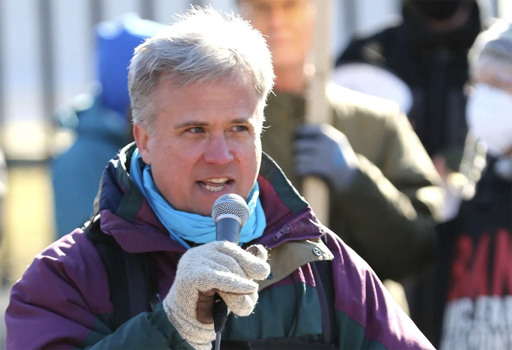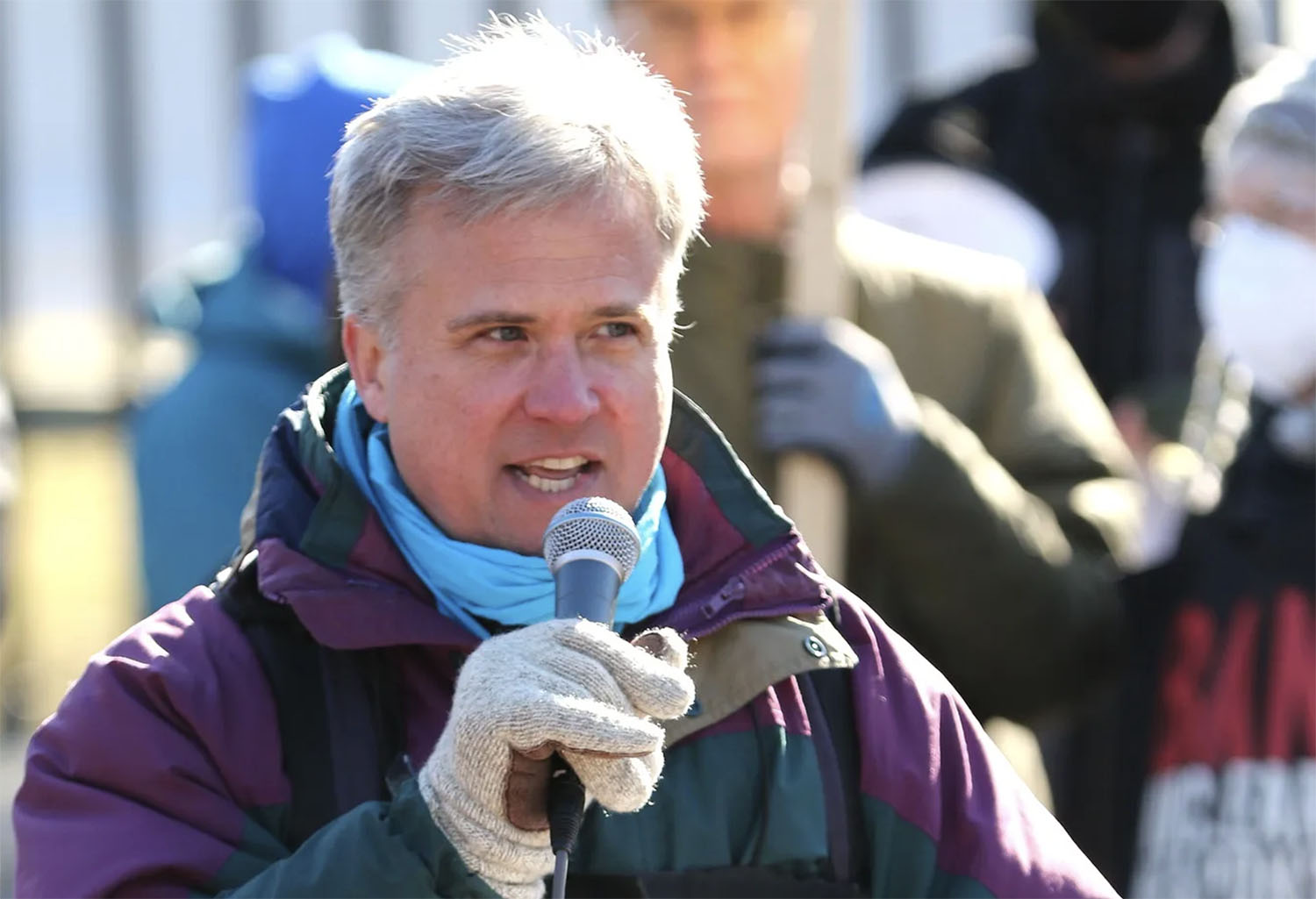By ODVV, August 10, 2025
In this interview, David Swanson, Executive Director of World BEYOND War, argues that Israel’s 2025 attacks on Iran blatantly violate international law, describing the defensive justification under Article 51 of the UN Charter as “at the top end of the dishonesty scale.” He emphasizes the urgent need for grassroots, nonviolent activism to challenge Western complicity and demand accountability for war crimes.
As global headlines shift rapidly from one crisis to another, the very structures designed to uphold peace and international legality are increasingly revealed as fragile, politicized, or absent. Amid this unraveling, voices of conscience—grounded in moral clarity and historical awareness—remain essential. One such voice is that of David Swanson, who has long challenged the normalization of militarism and the erosion of legal accountability in international relations.
Swanson is the Co-Founder and Executive Director of World BEYOND War, a global network committed to the abolition of warfare in all its forms. Based in Virginia, he also serves as Campaign Coordinator for RootsAction.org and hosts Talk World Radio, where he engages leading scholars and activists on issues of war and peace. A recipient of the 2018 Peace Prize from the U.S. Peace Memorial Foundation, Swanson’s work spans journalism, advocacy, and education, with a sustained focus on nonviolence, international law, and grassroots mobilization.
In the aftermath of Israel’s twelve-day aerial assault on Iran in June 2025—carried out with full U.S. support and resulting in widespread civilian harm and destruction—international concern over the erosion of legal norms and unchecked aggression has reached new heights. In this interview with the Organization for Defending Victims of Violence (ODVV), David Swanson offers a candid reflection on the breakdown of international legal standards, the complicity of Western powers, and the urgent need for bottom-up resistance to reclaim justice. His responses challenge dominant narratives of “defense” and “deterrence,” calling instead for a renewed global ethic rooted in civil courage, solidarity, and peace.
The full transcript of this important exchange follows:
1. Israel’s military attacks on Iran since 13 June 2025 have resulted in over 1,100 civilian deaths and nearly 6,000 injuries. These attacks have been justified under a unilateral interpretation of Article 51 of the UN Charter. In your view, how do these actions stand under international law, particularly in light of Article 2(4) and the prohibition on the use of force against sovereign states?
The creation of Article 51 was a predictable disastrous opening for war that severely weakened the total ban on war that had existed in the Kellogg-Briand Pact. No side of any war ever fails to claim it is acting defensively. Arguably, none of these claims is fully justified, because alternative means of defense can be superior to war (unarmed civilian defense, diplomacy, the rule of law, etc.), but some claims are more blatantly dishonest than others. The claim that Israel (or the United States) is acting defensively in bombing another country such as Iran is at the top end of the dishonesty scale. If any warmaking is NOT defensive it is bombing a distant country.
2. In your October 2024 article “The Israeli Government Must Be Stopped,” you warned of the looming danger of a wider regional war involving Iran, triggered by Israel and supported by Western powers. Given the current reality, how do you assess the role of Western governments and weapons suppliers in enabling this escalation? What responsibility do they bear under international law and moral accountability?
The UN Charter says “All Members shall refrain in their international relations from the threat or use of force against the territorial integrity or political independence of any state, or in any other manner inconsistent with the Purposes of the United Nations.” Those who do not are behaving criminally.
3. The recent Israeli strikes have deliberately targeted civilian infrastructure—including hospitals, water facilities, and a pharmaceutical factory—causing mass displacement and panic. From the perspective of strategic objectives and international humanitarian law (IHL), how do you interpret this pattern of attacks? What do they reveal about Israel’s military and political aims?
Israeli government officials are openly genocidal in their remarks. No commentary from others can make that any worse. The notion that the International Court of Justice needs months or years to find guilt of genocide in Gaza is absurd.
4. As someone deeply involved in peace movements and campaigns for demilitarization, what forms of grassroots mobilization and public pressure do you believe are most urgently needed now to prevent further escalation and demand accountability? Are there lessons to be drawn from past anti-war efforts that can guide current actions?
Public pressure has helped prevent a major U.S. assault on Syria in 2015 and on Iran numerous times. We need solidarity across borders, principled activism apart from political parties, and all the tools of nonviolent activism urgently employed.
5. Israel’s extrajudicial killings of Iranian scientists, medical personnel, and rescue workers have raised serious questions about impunity. What practical steps should international institutions like the ICC or UN Human Rights Council take to uphold justice? If formal mechanisms remain blocked, what role can civil society and transnational advocacy networks play in filling this accountability gap?
There is an arrest warrant for Netanyahu. The problem is that national governments allow him to vicit their nations and not be arrested. Just before he left the United States last week to return to Israel, he flew from Washington to my town of Charlottesville to visit the slave plantation of Thomas Jefferson. But nobody knew about it until he had come and gone. We need to do a better job of tracking the world’s worst indicted criminals so that they can be arrested.
The post ODVV interview: Reclaiming Peace in a World at War: A Conversation with David Swanson appeared first on World BEYOND War.
From World BEYOND War via this RSS feed



